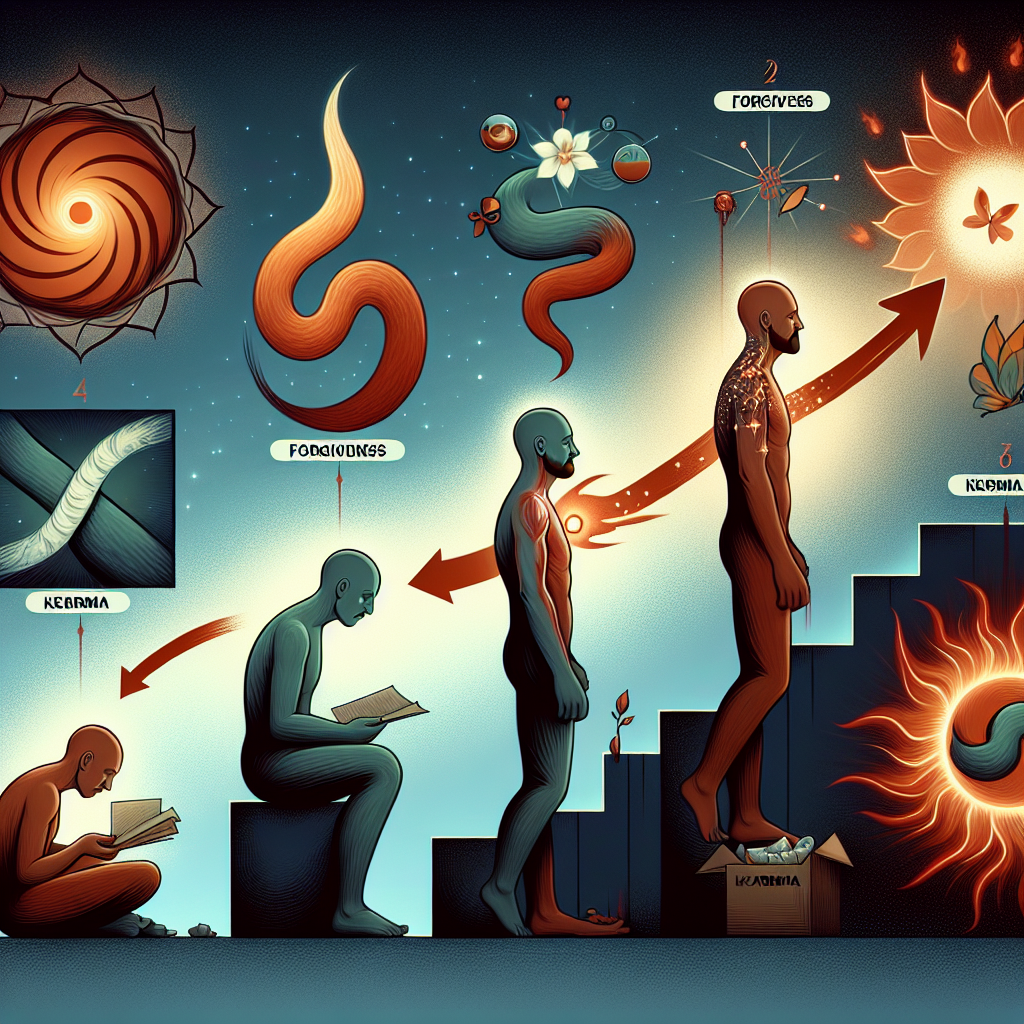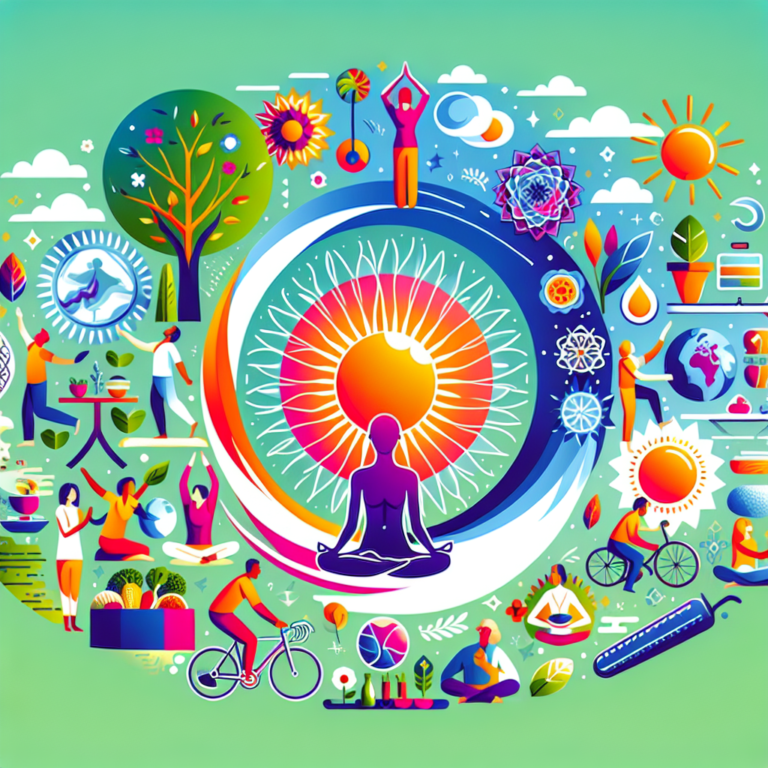Introduction
Life is a complex tapestry of experiences, emotions, and relationships. Among the most profound challenges we face are those involving hurt and betrayal. Forgiveness, a crucial aspect of emotional healing, often seems elusive in the face of deep-seated pain. However, one concept that can illuminate the path toward forgiveness is karma. Rooted in ancient philosophies and spiritual traditions, karma provides a framework for understanding the interplay between our actions, their consequences, and the potential for healing.
This article will explore the intricate relationship between karma and forgiveness, examining how an understanding of karmic principles can facilitate the healing of past wounds. We will delve into the nature of karma, the essence of forgiveness, and how the two concepts interweave. Through this exploration, we hope to offer insights that empower individuals to embark on their own journeys of healing and release.
Understanding Karma
Karma, derived from the Sanskrit word "karmā," means action, work, or deed. In many Eastern philosophies, particularly Hinduism and Buddhism, karma refers to the law of cause and effect. Essentially, it posits that every action we take has consequences that ripple through our lives and the lives of others. These consequences can manifest in various ways—good or bad, immediate or delayed, this life or the next.
The Law of Cause and Effect
Karmic principles suggest that our thoughts, words, and deeds contribute to our present and future experiences. When we act with intention—whether positive or negative—we set a chain of events in motion. For instance, if someone acts kindly, it is likely they will experience positivity in return. Conversely, harmful actions often lead to suffering, either for oneself or others.
This principle of reciprocity extends beyond mere interpersonal relationships; it is part of a broader cosmic order. Every individual’s actions contribute to the collective energy of the universe, shaping the world around us.
Types of Karma
Sanchita Karma: This refers to the accumulated karma from all past actions. It is the total storehouse of karmic effects that we carry into our present lives.
Prarabdha Karma: This is the portion of karma that is ripe and ready to bear fruit in our current life. It represents the circumstances and experiences we are meant to encounter.
Kriyamana Karma: Often called "current karma," this is the karma we are currently creating through our thoughts and actions. It influences our present circumstances and future experiences.
- Agami Karma: This is the karma that is in the process of being created. It represents the potential actions we can take in the future and their consequent effects.
The Karmic Cycle
The cycle of karma emphasizes that we are interconnected with all living beings. Our actions can have far-reaching effects, often extended beyond our immediate understanding. Conversations about karma often lead to discussions about reincarnation—the belief that our souls go through cycles of birth and rebirth, carrying karmic effects from previous lives into new ones. This perspective that our current experiences are influenced by past actions can offer comfort and insight into our struggles.
The Essence of Forgiveness
Forgiveness is an emotional and psychological process that allows individuals to release resentment, anger, and bitterness towards those who have caused them harm. It is not an endorsement of the wrongdoing; rather, it is an act of self-liberation.
Why Forgiveness Matters
Emotional Healing: Holding onto grievances can lead to prolonged emotional distress and turmoil. Forgiveness becomes a pathway to release these burdens, facilitating emotional healing.
Mental Clarity: Resentment and anger can cloud our judgment and perspective. Letting go of grudges allows for clearer thinking and a more constructive approach to life’s challenges.
Physical Well-Being: Research indicates that unresolved anger and resentment can lead to various health issues, including stress-related ailments. Forgiveness fosters a sense of peace that positively impacts overall health.
Building Relationships: Forgiveness can restore relationships and foster a sense of connection. It can help individuals move past conflicts, enabling stronger bonds.
- Personal Growth: Engaging in the forgiveness process often leads to profound personal development. It encourages introspection and self-awareness, allowing us to learn from our experiences.
The Misconceptions of Forgiveness
Many misconceptions surround forgiveness, often hindering its practice:
Forgiveness Equals Condemnation: Forgiving someone does not mean condoning their actions. It does not absolve the individual from responsibility or the consequences of their actions.
Forgiveness Requires Reconciliation: Forgiveness can happen without reconciling the relationship. One can forgive internally while choosing to maintain distance from the person or situation.
- Forgiveness is a One-Time Event: The process of forgiveness can be iterative. It may require multiple attempts to fully release feelings of hurt and resentment.
The Interplay Between Karma and Forgiveness
The relationship between karma and forgiveness is intricate and profound. Understanding karma can enrich our comprehension of the forgiveness process and offer insights into how to navigate past wounds.
Recognizing Karmic Patterns
Karma provides a lens through which we can understand our experiences and the motivations of others. When we face hurt, it is valuable to recognize that the pain we experience may be connected to broader karmic patterns. This awareness can shift our focus from blame and frustration to a deeper understanding of the trajectory of our lives.
Understanding the Context: When we recognize that our actions contribute to a larger karmic cycle, we may develop empathy for those who have wronged us. Understanding that they, too, are affected by their karma can facilitate compassion.
- Exploring Our Karmic Contributions: Reflecting on our own actions and their consequences can illuminate patterns of behavior that may have contributed to the situation. This self-awareness can empower us to change our responses and choices moving forward.
The Healing Power of Forgiveness
Forgiveness is an essential tool for healing past wounds. By releasing bitterness and resentment, we free ourselves from the burdens of the past. Here is how forgiveness intertwines with karmic principles:
Breaking the Cycle: By forgiving those who have harmed us, we can interrupt the cycle of negative karma. Instead of perpetuating a cycle of retaliation and hurt, we create space for healing and growth.
Fostering Positive Karma: Engaging in forgiveness can generate positive karmic effects. This act of compassion not only benefits the one being forgiven but also enriches the forgiver’s life, creating a ripple effect of positivity.
- Embracing Current Karma: The process of forgiving is about taking control of our current karma. It allows us to choose how we respond to past actions—whether to hold onto pain or to release it and foster healing.
Practical Steps to Forgiveness Through Karma Awareness
Forgiving someone can be a challenging journey. However, being mindful of karmic principles can facilitate this process. Here are some practical steps:
Reflection: Take time to contemplate the situation. Reflect on how your actions contributed to the scenario and recognize the part that karma plays in the unfolding of events.
Empathy: Try to view the circumstances from the other person’s perspective. They may have acted out of their own unresolved issues, reflecting their karma. This shift in perception can pave the way for compassion and understanding.
Journaling: Write about your emotions surrounding the hurt you experienced. Document how you feel, exploring both the pain and the potential for healing. This can create clarity and empower you to articulate your feelings.
Meditation: Engage in meditation focused on forgiveness. Visualize the release of resentment and the acceptance of events as part of the greater karmic flow.
Set Intentions: Create a statement of intent that emphasizes your desire to forgive and let go. Reaffirm this intention regularly to reinforce your commitment to healing.
- Seek Support: Consider seeking help from a therapist or counselor if the pain feels overwhelming. Professionals can guide you through the forgiveness process, helping you navigate your feelings.
Forgiveness as a Karmic Gift
Through understanding karma, we can view forgiveness as a gift rather than a burden. Some key perspectives to consider include:
Empowerment: Choosing to forgive empowers us by placing our well-being in our own hands. It shifts the narrative from feeling victimized to embracing agency.
Interconnectedness: The act of forgiveness highlights the interconnectedness of all beings. As we release our grievances, we contribute to a collective healing process that benefits not only ourselves but also the universe.
- Evolving Consciousness: Forgiveness reflects an evolved consciousness. It invites us to rise above egoic responses and engage with a more profound spiritual perspective.
The Transformative Journey of Forgiveness
The journey toward forgiveness can be transformative. As we embrace forgiveness through the lens of karma, we start to cultivate a deeper sense of self-awareness, emotional resilience, and compassion.
Cultivating Gratitude
The process of forgiveness can also unveil the power of gratitude. While it may seem counterintuitive to be grateful for painful experiences, recognizing how they contribute to our growth can promote a sense of acceptance.
Learning from Adversity: Each experience of hurt offers a lesson. By acknowledging the growth that arises from these challenges, we can foster gratitude for our journey, regardless of its difficulties.
- Shifting Perspectives: Gratitude can shift our perspectives from scarcity to abundance. Instead of fixating on what was lost or taken, we can celebrate the strength and resilience we develop through the process.
Embracing Love and Compassion
Ultimately, the journey of forgiveness leads us toward love and compassion—two of the highest virtues in many spiritual traditions.
Fostering Compassion: As we forgive, our hearts open, allowing us to connect with our innate compassion for ourselves and others.
- Creating a Legacy of Kindness: Embracing forgiveness enables us to create a legacy of kindness and understanding. This contributes to a more harmonious world, where empathy and love prevail.
Conclusion
The interplay between karma and forgiveness offers a profound understanding of how to heal past wounds. By recognizing the principles of karma, we gain insight into the cyclical nature of our experiences and the interconnectedness of all beings. Forgiveness, then, becomes a powerful tool for transformation—a way to release the burdens of the past and embrace a future filled with compassion, gratitude, and healing.
As we navigate the waters of life, let us remember that forgiveness is not merely a gift we give to others; it is also a vital act of self-liberation. In recognizing the role of karma in our journeys, we can empower ourselves to heal and move forward, embracing our innate capacity for love and understanding.
FAQs
1. What is karma?
Karma is a principle from ancient philosophies that denotes the law of cause and effect. It suggests that every action we take has consequences, and these consequences affect our present and future experiences.
2. How does karma influence forgiveness?
Understanding karma can help individuals recognize the interconnectedness of their actions and the motivations of others, fostering compassion and empathy. This awareness can facilitate the forgiveness process and promote healing.
3. Is forgiveness the same as condoning harmful behavior?
No, forgiveness is not the same as condoning. Forgiveness is a personal choice to release resentment, while condoning implies acceptance of the behavior. Forgiveness does not absolve the person of responsibility.
4. Can you forgive someone without reconciling with them?
Yes, forgiveness can happen independently of reconciliation. You can forgive someone internally while choosing to maintain distance for your well-being.
5. How can I begin the journey of forgiveness?
You can initiate your forgiveness journey by reflecting on the situation, practicing empathy, journaling your feelings, meditating on forgiveness, setting intentions, and seeking support if needed.
6. What role does gratitude play in forgiveness?
Gratitude can shift your perspective from focusing on pain to recognizing the growth that arises from challenges. It can foster acceptance and promote emotional healing as part of the forgiveness process.
7. Is forgiveness a one-time event?
Forgiveness is often not a one-time event. It can be an ongoing process that requires continual reflection and intention, especially for deep-seated wounds.
8. Can forgiveness improve my health?
Yes, forgiving others can lead to emotional and physical well-being. Research suggests that forgiveness reduces stress and the risk of stress-related ailments, contributing to overall health.
9. How can I develop more empathy for those who hurt me?
Developing empathy involves trying to view the situation from the other person’s perspective, recognizing their potential struggles, and understanding the broader context of their actions.
10. What can I do to maintain my commitment to forgiveness?
You can maintain your commitment to forgiveness by regularly affirming your intention, reflecting on your feelings, and practicing techniques like meditation and journaling to reinforce your healing journey.
Of course! What would you like your prompt to be about? Please provide some details or a theme, and I’ll craft one for you., #Role #Karma #Forgiveness #Healing #Wounds, #Role #Karma #Forgiveness #Healing #Wounds, 1734036644, the-role-of-karma-in-forgiveness-healing-past-wounds





